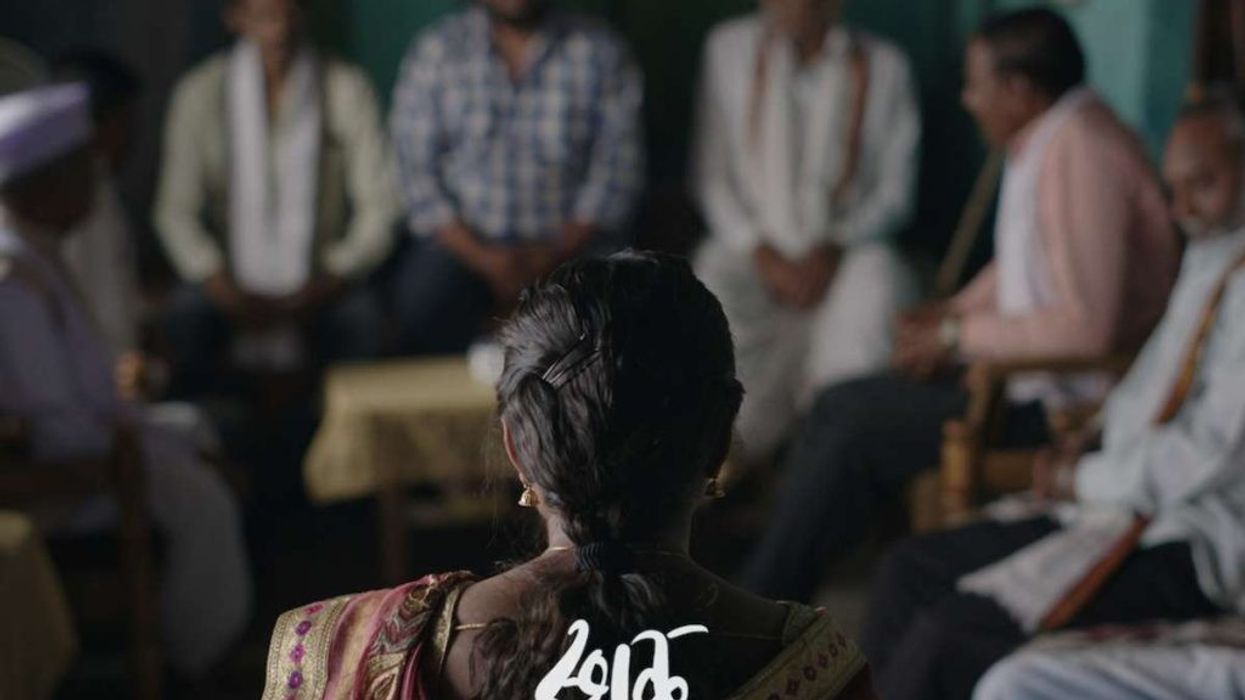Writer-director Jayant Digambar Somalkar's debut feature film Sthal (A Match) and Tarsem Singh Dhandwar's Dear Jassi emerged winners on Sunday at the closing ceremony of the 48th Toronto International Film Festival (TIFF).
While Sthal, which is a Marathi-language Indian film, won the NETPAC Award, Dear Jassi (Punjabi/English) earned the Platform Award, according to TIFF's official website.
Sthal recently had its world premiere at the prestigious gala. It is backed by the production company Dhun, co-founded by Karan Grover, Shefali Bhushan, Somalkar and Riga Malhotra.
The NETPAC Award is presented by the Network for the Promotion of Asian Cinema to honour the best film from the Asia-Pacific region screened at the TIFF.
Told from the viewpoint of Savita, a young girl, portrayed by first-time actor Nandini Chikte, Sthal is set in Somalkar's hometown of Dongargaon in Maharashtra's Vidarbha region and explores the custom of arranged weddings.
Somalkar, who has previously co-directed the Prime Video web series Guilty Minds, dedicated the award to all the brave women who challenge their adverse circumstances.
"The official selection of Sthal at the prestigious 48th Toronto International Film Festival was a great honour for us! And now this award is an added feather. I, along with my entire team, am thrilled and honoured to receive the 2023 NETPAC Award for Sthal at TIFF. This is for our love, belief and passion for good cinema," the filmmaker said in a statement.
Sthal is the third Indian film to win the NETPAC Award following Margarita, with a Straw (2014) and Qissa (2013).
According to the makers, it was the only Indian film to be selected for the Discovery Programme, which showcases the first and second features of emerging filmmakers from around the world.
Bhushan, who also co-directed Guilty Minds, said Sthal receiving the NETPAC award reaffirmed her belief that one only needs vision and hard work to make a good film.
"An independent film like Sthal, which is also a debut for the director, Jayant Somalkar, the entire cast and many of the crew too, has been an inspiring journey for all of us," the producer said.
"Belief in the art form comes alive with accolades being showered by the fraternity and viewers. As an independent producer, it's never easy but the impact of being awarded is far greater a motivation and brings faith to self-belief. Humbled with love people have shown to Sthal - A Match," added Grover.
Taranath Khiratkar, Sangita Sonekar, Suyog Dhawas, Sandip Somalkar, Sandip Parkhi, Swati Ulmale, Gauri Badki and Mansi Pawar also round out the cast of Sthal.
Dear Jassi, a film inspired by a real-life honour killing in Punjab, won an award of $20,000 CAD under the Platform, TIFF's competitive programme that "champions bold directorial visions".
Directed by India-born filmmaker Dhandwar, the 1990s-set film also marks a debut for producer Sanjay Grover, son of actor Gulshan Grover.
The story follows Indo-Canadian Jassi (Pavia Sidhu), who meets Mithu (Yugam Sood), a rickshaw driver who lives down the street when on a trip to visit her extended family in Jagraon in Punjab's Ludhiana.
The sweethearts begin exchanging love letters and Mithu starts making travel plans. But when Jassi sees her family lashing out at one of her cousin's suitors, she realises there's no easy way to pursue their relationship.
The TIFF came to a close on Sunday.




